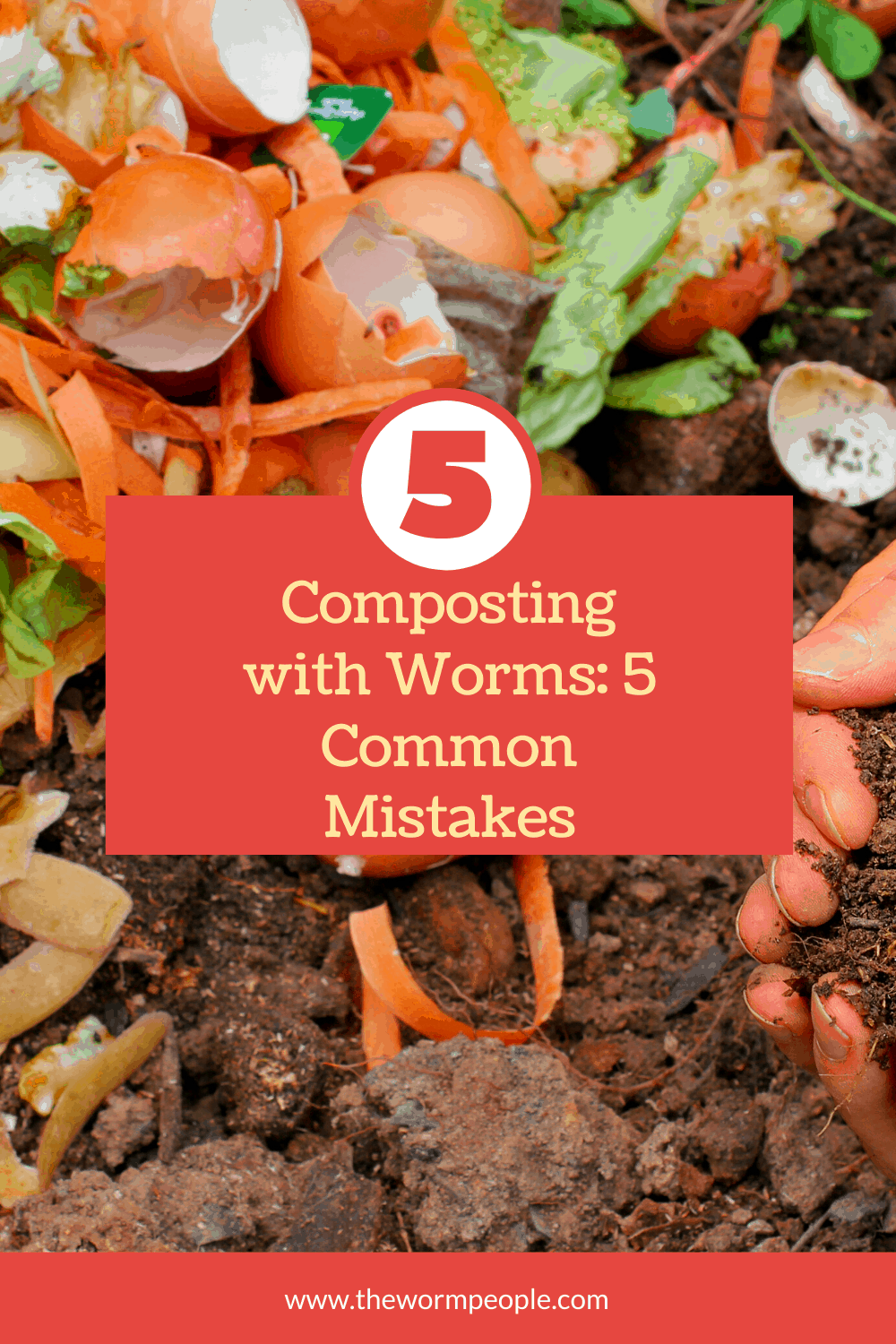
Jeffery Jago is a expert in horticulture and worm breeding. With a background in plant cultivation
Last Updated on April 24, 2021 by Jeffery Jago
It’s easy to make mistakes when starting a worm bin. Composting worms speed up the composting process, but if you’re new at vermicomposting it can be tricky! Once you get the hang of it though, your household might even adopt these little guys as members of their family and treasure them for all they do! Here are five common errors people tend to make when setting up a worm bin:
Number 1: Not having enough bedding for the worms. When first starting out, you need to make sure you’ve got enough bedding in the bin. Normally this will slowly increase as you add more and more organic matter to be composted. But at the beginning, You won’t have that luxury. Make sure the bedding is thick enough for the number of worms you have.
You also need to make sure you are using proper bedding in the worm bin. You want to avoid using any bedding that contains chemicals or too much artificial material.
Number Two: Not having enough worms in the bin. This is a common misconception, but you don’t necessarily need more than one pound of worms for every two pounds of organic matter. That being said, if your goal is to compost quickly and with efficiency, it might be best to have some extra worms on hand so they can keep up with demand and still maintain their health.
Just be aware if you get TOO many worms, you may find you do not produce enough waste to keep them happy and fed. In that case, you should remove some worms and toss them in your garden, Or start adding supplementary food sources to the bin.
Number Three: Starting out without checking pH levels first. If you’re testing soil pH before starting a garden then chances are you’ll know when this needs to happen beforehand when setting up worm bins as well! The most important thing about acidifying your worm’s environment is not to wait until things get too intense – it’s better to do a little at a time and maintain the ideal pH levels.
Number Four: Too Much Variety in Your Food Sources. Worms need carbs, proteins, minerals and vitamins so you can’t just throw everything into the bin without some thought. For example, if your compost is starting to smell like rotten fruit or vegetables then adding more greens will help balance out meals for your worms! If they’re getting protein-rich foods all of the time there are chances their population will explode which could make them sickly, but throwing in ground-up eggshells for calcium provides variety that won’t send them on an eating frenzy!
So overall it’s important to keep the food balance in the bin. It’s helpful to keep track of what you’re adding on a daily basis so you can compare soil testing and make appropriate changes when you need to. It sounds like a lot of work but it’s actually not too bad!
Number Five: Not testing soil samples every day or week. It’s important to know how your compost is doing because that also impacts which type of food scraps should be added, so not paying attention means there could be potential problems down the line. If all your tests are coming back showing too many nitrates then start cutting out some of those high nitrogen items like meat, eggs, dairy products, and coffee grounds from your own diet (if and when possible), Or start a new bin with worms capable of dealing with those specific types of waste!
Interested in learning more about vermicomposting? Check out our other articles:
what-is-vermiculture
what-is-vermicomposting
can-you-put-ash-in-compost-bin
can-you-compost-paper-bags
chicken-bones-in-compost
composting-with-worms-5-common-mistakes
can-you-compost-bread
can-you-compost-eggshells
can-you-compost-onions
can-you-compost-paper-towels
can-you-compost-paper-with-ink

